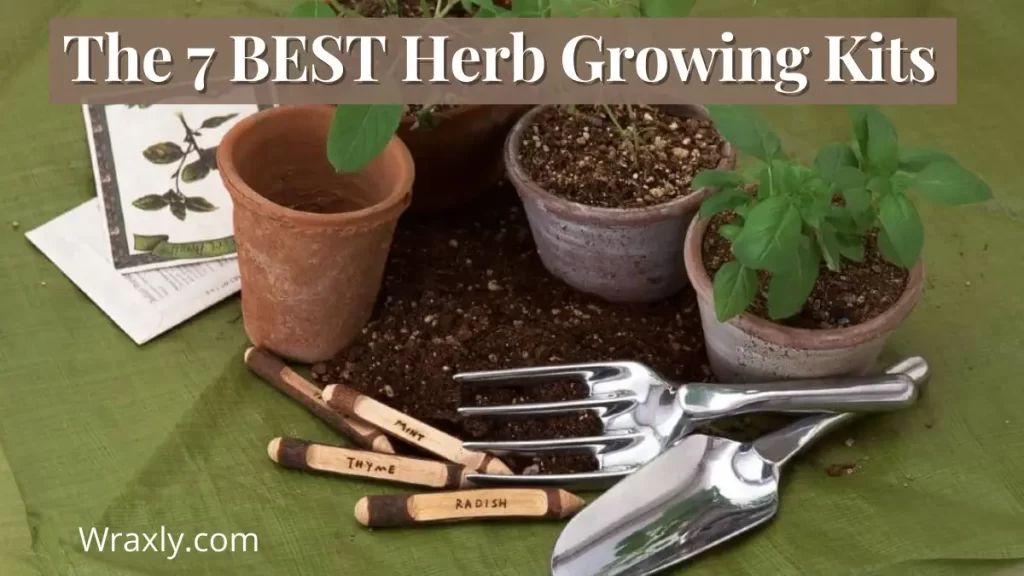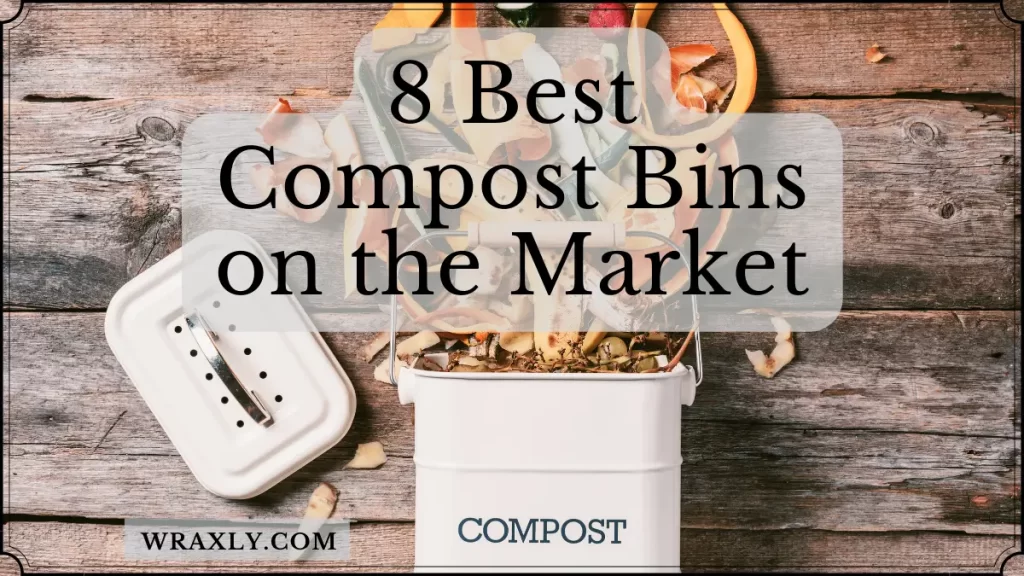We’re all familiar with mulch as an easy, no-frills groundcover for just about any outdoor space you could think of. What some backyard gardeners don’t realize, however, is that mulch is much more than an aesthetics-enhancer or a mud-preventer. It actually serves several beneficial purposes for the plants it surrounds.
We can actually use mulch for our weed-prevention purposes! Mulching is another effective way of covering the bare soil around our plants. A good layer of mulch blocks sunlight that weeds need to germinate and grow. Just make sure your plants have already germinated and are tall enough to still reach sunlight before you put your mulch down! Many gardeners purchase already-sprouted plants to transplant into their beds, while those who grow from seeds must germinate their seeds and allow them to grow for a couple weeks in separate containers before transplanting to a bed where they plan to lay mulch.
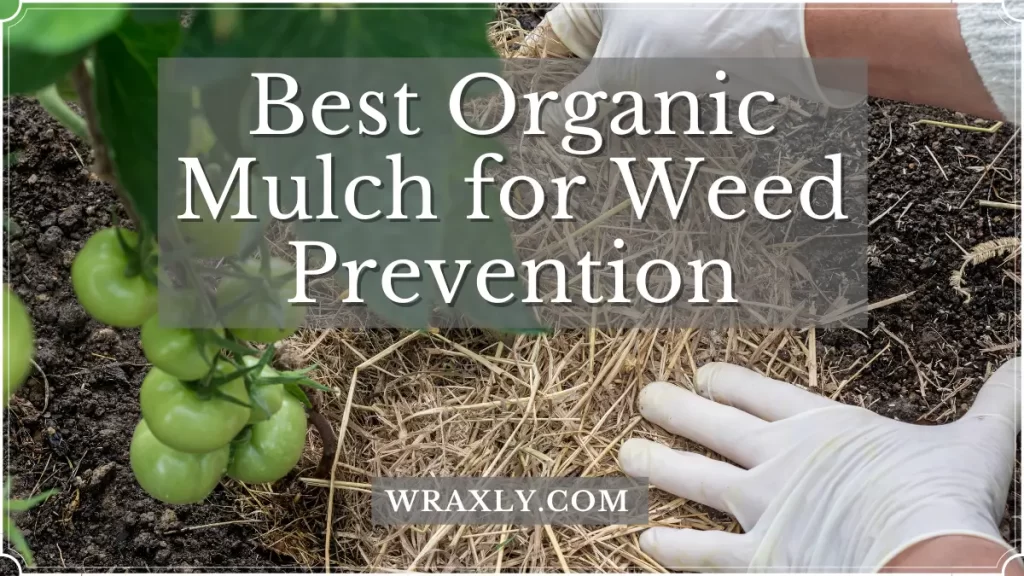
Best organic mulch options
There are several different types of mulch, and indeed, not all of them are made from trees! Below is a quick list of some varying options for mulch, and why you may or may not want to use each one:
Hardwood Bark
This is what most people think of when they think of mulch. As the name would suggest, it’s mulch made from the bark of hardwood trees. It’s great for plants who enjoy neutral-to-alkaline soil, as it won’t acidify the soil as it decomposes. If you have soil whose pH balance has been skewed to the acidic, letting hardwood bark mulch decompose on top of it is a good way to amend it. The downside is that this mulch can get pretty expensive to buy in bags.
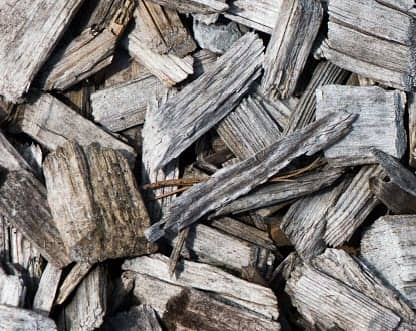
Woodchips
Otherwise known as “wood mulch,” woodchips operate much the same as bark mulch. It can be made from a variety of trees, allowing you a choice in mulch color. Some will break down much faster than others- pine, for instance, does not last as long as cedar.
Many municipalities offer free mulch to whoever wants it, made from trees that the city cuts down. It may be a good idea to let this mulch age before applying it to your garden, as its unknown source means you will not know if it has been treated with any chemicals. Letting it sit in the rain and sun for a while before application allows time for any possible chemical treatments to break down before they harm your garden.
Click here to download your FREE guide to organic weed and pest control
Hay or straw
Hay, on the other hand, is much cheaper than mulch, and straw even cheaper than hay. You can buy either of these at any animal feed store or farm and garden store.
Even better- sometimes a farmer’s hay gets wet and spoils, making it so that animals can’t eat it. If you know a local farmer, they’d probably be more than happy to let you haul it off for your garden. Decomposing hay is wonderful because it provides nutrients for your plants- making compost right in your very garden.
Two things to keep in mind with hay or straw: it doesn’t look as nice as wood or bark mulch, so it may be best for your veggie garden rather than your flower garden, if this matters to you. Secondly- hay and straw are plants themselves, so after a while, they will start to sprout. If you’re looking to grow hay, then there’s no problem! If not, you’ll have to continuously replace your mulch.
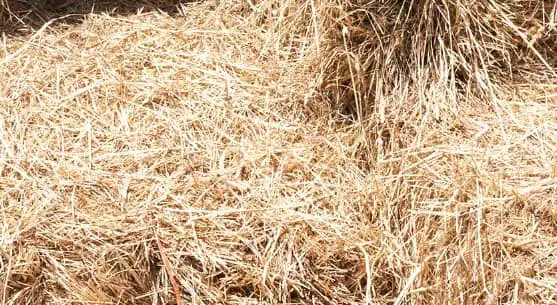
Pine Needles or Pine Straw
This is a popular alternative to bark or wood mulch. Have you ever noticed that nothing grows underneath pine trees? That’s because of the thick blanket of shed needles lying at their base. Pine needles form a great barrier against weeds, but over time they will acidify your soil- so pine needles or pine straw are best used in gardens with acid-loving plants, such as bleeding hearts, azalea, or rhododendrons.
Can You Use Ash as Mulch?
You may have heard, anecdotally, of using ash in your garden, either as mulch, or just mixed into the mulch or soil. Here’s the rundown: Wood ash (meaning, ash that results from just burning wood) contains great nutrients for plants, most notably potassium and calcium, which help strengthen your plants against stresses. It can be used sparingly, mixed into soil or mulch, to help fertilize your garden.
You cannot use tons of ash as mulch, as the plants do not need that much. If your soil is already acidic, then you probably won’t want to use ash at all, because ash will acidify your soil. Make sure to only ever use wood ash.
Steer clear of BBQ ash, or ash from burning cardboard/plywood/pressure-treated wood/painted wood. Just good ol’ regular firewood ash will do the trick- in moderation!
What Else Does Mulch Do for Plants?
Mulch doesn’t benefit your garden by just keeping weeds at bay- it has a few other properties which are good for your garden plants, as well! An appropriate mulch blanket helps:
- Regulate soil temperatures– by up to 18 degrees Fahrenheit at midday-keeping roots close to the surface from getting fried.
- Retain water and prevent it from evaporating or running off the soil. So, your plants are getting better hydration, you’re wasting less water, and your more delicate roots aren’t being cooked to death by the hot summer sun.
- Improves soil quality- as mulch decomposes over time, it also adds organic material to the soil, which increases the soil’s ability to retain vital plant nutrients, such as magnesium, calcium, potassium, and iron.
Beware of These Mulching Mistakes
Too much of a good thing can be bad for your plants! Make sure that your plants aren’t being smothered by mulch, and that your mulch isn’t more than a few inches deep. Too much mulch, aside from smothering plants, can cause plant rot when it is retaining too much moisture too close to the plant. Thick layers of mulch can also, over time, cake together and actually repel water. So remember- mulch in moderation!
You may also be interested in: Fabric Grow Bags: The Last Guide You’ll Ever Need
Mulching Pros
- easy to apply
- regulates soil temperature
- retains water
- improves soil quality
- readily available for purchase at garden centers and hardware stores
Mulching Cons
- can be detrimental to plants if applied incorrectly
- can get expensive
Where to get free mulch
- your local city or town since they collect leaves and fallen limbs
- the electric company since they regularly trim and remove trees that are threatening power lines
- tree care companies and cutting services
- ChipDrop app finds local tree companies working in your area and notifies them that you’d like some wood chips or logs (or both)
Resources
Learn more about mulching from the USDA.
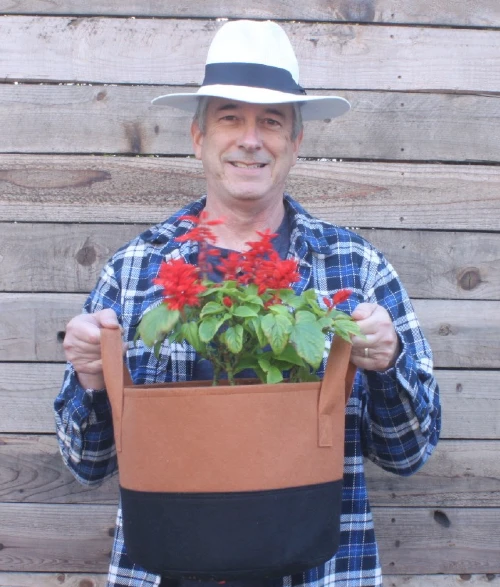
Darrell has a passion for gardening that he inherited from his father. Go here to read more about the influence his father played in his love for gardening. If you want to send Darrell a quick message, then visit his contact page here.


